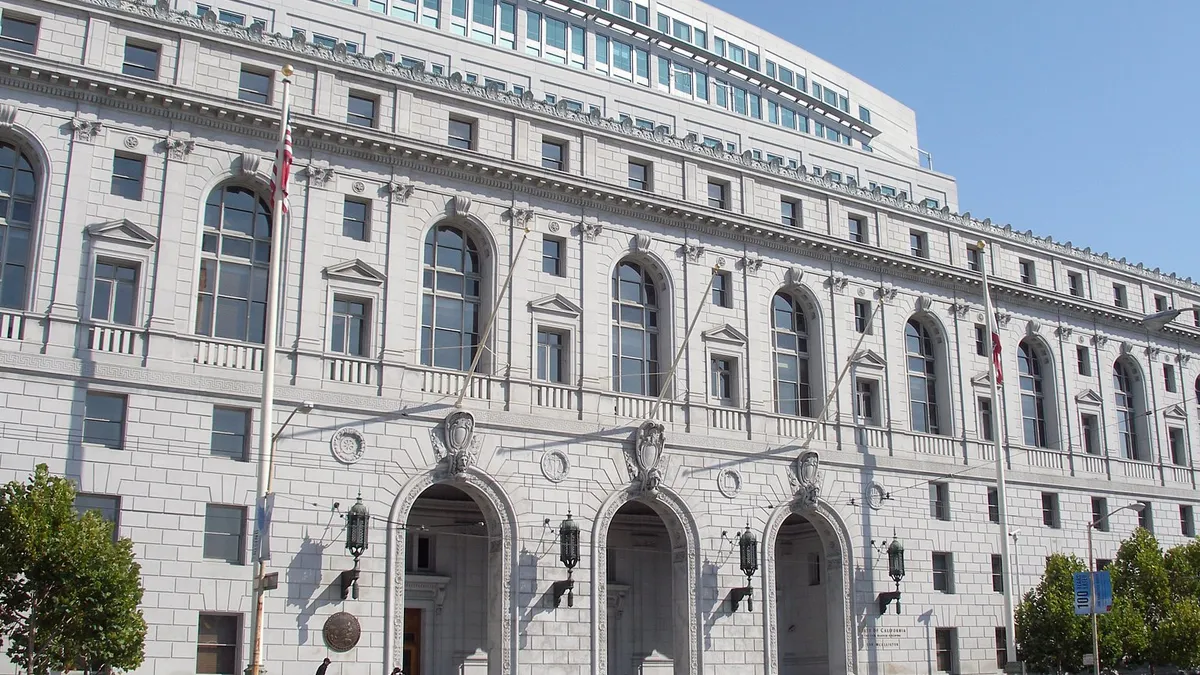There’s still value in taking employee cases to arbitration even if the employee can later pursue the claim in court on behalf of other aggrieved employees, says Michael Afar of Seyfarth Shaw in his take on the California Supreme Court’s decision last week in Adolph v. Uber.
Under the closely watched ruling, an employee who’s compelled to arbitrate his employment-related claim doesn’t forfeit his standing to represent others in a lawsuit against the employer under California’s Private Attorneys General Act (PAGA).
The decision raises employer concerns over whether it makes sense to compel a matter to arbitration if the employee can still turn around and sue the company on behalf of others.
But there’s a silver lining to the decision, Afar says; to the extent the employee is found not to be aggrieved under the state’s labor code, the employer has effectively dismantled the case before it can get to the courts.
“If you can get some adjudication on the merits against the employee in arbitration, and the arbitrator finds they were not harmed, not aggrieved, under the labor code, then they no longer have standing to pursue the representative claim under PAGA in state court,” Afar told Legal Dive. “That’s a big sword in favor of employers that the California Supreme Court has allowed to go forward.”
Private attorneys general laws
The decision is unique to California, but several other states are considering laws that are similar to the Private Attorneys General Act. The law effectively deputizes employees to act as agents of the state and take cases to court if there appears to be a labor law violation that affects a broad representation of employees.
“Directors and Officers beware,” Priya Cherian Huskins, senior vice president, management liability, at Woodruff Sawyer, said in the introduction to a 2021 analysis. “PAGA claims in California are taking off, and other states want to get in the game as well.”
The idea of PAGA laws is that, as private attorneys general, employees can help the state extend its enforcement reach beyond what it could do on its own with its limited resources.
“The statute deputizes these private individuals – what it calls aggrieved employees – to effectively fill in the shoes of the attorney general or the labor commissioner and pursue these types of labor code violation claims against employers,” Afar said.
Three-quarters of any penalties handed out go to the state; the remaining quarter is divided among the group of aggrieved employees.
Employment status challenged
In the Adolph case, Erik Adolph was an Uber Eats driver who challenged his status as an independent contractor in arbitration and sought to bring a case against Uber in court on behalf of other drivers.
An earlier U.S. Supreme Court decision, Viking River v. Moriana, interpreted California’s PAGA law to mean an employee can’t sue on behalf of others once the case is arbitrated. But California’s top court, which has final say in the interpretation of its state laws, says the employee can arbitrate his case without losing standing for the broader representative case in court.
“Where a plaintiff has brought a PAGA action comprising individual and non-individual claims, an order compelling arbitration of the individual claims does not strip the plaintiff of standing as an aggrieved employee to litigate claims on behalf of other employees under PAGA,” Justice Goodwin Liu of the California Supreme Court wrote in the unanimous decision.
Employer impact
There’s a two-fold takeaway for employers, Afar said. First, employers will still have an incentive to arbitrate claims, because whatever challenges are presented in arbitration will inform adjudication of the claims in court.
“Taking the case through arbitration can show a court on labor grounds that, even if the employee is deemed to be aggrieved, you’ve just shown the state court judge that you had to go through months and months of discovery and a full-blown hearing just to prove the claims of that singular employee,” Afar said. “So, how are you going to do that for hundreds if not thousands of other employees in a broader representative claim in state court? That’s a very strong tool for employers to present on manageability grounds, not just in theory but in practical application. It makes strong arguments down the road that any broader representative claim is going to be unmanageable.”
Second, the case shows the importance of employers keeping their arbitration agreements up to date to reflect current law. Agreements that have unenforceable provisions, in a worst-case scenario, can lead to the agreements getting thrown out completely, opening the door to the broad representation claim in court.
“You want to make sure there’s nothing in there that a court could look at and say, ‘That is so unconscionable that we have to strike the arbitration agreement altogether,’” he said.
Employers also want to ensure they have a severability clause in their arbitration agreements, because then any unenforceable provisions can be severed out while the other provisions are retained.
“If you had a wholesale waiver of all PAGA claims, that would violate [state law],” he said. “If you don’t have a severability clause, a court might say your arbitration agreement – it depends on the language, but it might say it’s unenforceable – then you’ve lost the whole purpose of rolling out your arbitration agreements.”
Bottom line: Even though the decision allows employees to arbitrate their claim without losing standing to file a claim in state court on behalf of others, it still makes sense for employers to compel claims to arbitration because how that arbitration is settled can inform how the case would be treated in court.



















